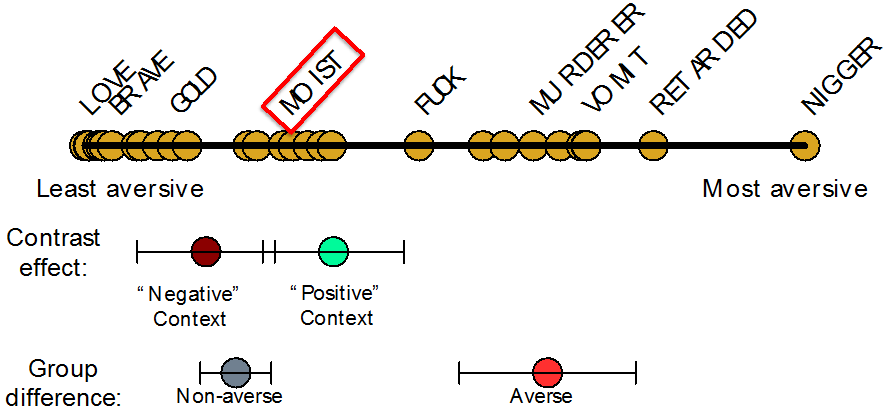There are few words in the English language that gross people out more than 'moist'. Moist. Moisture. Moistness. For the vast majority of the population, it's a veritable haiku of cringe.
But what it is it about that word specifically that's so repulsive? Damp isn't so bad, neither is wet. A lot have people have speculated in the past, but now a researcher has finally conducted a preliminary investigation into 'moist aversion', and thinks he might have come up with some important, science-backed insights.
For starters, hatred for the word 'moist' really is a thing. After asking more than 2,400 participants to rate their feelings about the word through a variety of tests, psychologist Paul H. Thibodeau, from Oberlin College in Ohio, discovered that around 18 percent of them really did find the word moist unpleasant.
Those most likely to be disgusted by it? "[T]he prototypical moist-averse person is a young, neurotic, female who is well-educated and somewhat disgusted by bodily function," Thibodeau writes in the journal PLOS ONE.
(Side note: the title of his paper? "A moist crevice for word aversion: In semantics not sounds". Enough said.)
He then compared how participants responded to other words - both potentially gross or taboo ('penis', 'vomit'), and neutral ('gold', 'sunset') - in the hopes of figuring out what exactly it is about moist that rubs people up the wrong way.
Using their responses, he was able to create a scale from the words that were least to most aversive, and as you can see, 'moist' didn't actually score too badly compared to some other really horrible words we're not going to repeat here (but you can see in the chart below).
 Paul Thibodeau
Paul Thibodeau
Interestingly, there was no different in someone's likelihood of finding 'moist' gross based on their political ideology, religion, disgust towards sex, or any other personality variables.
So then what did influence people to find it repulsive? The evidence suggests it's a combination of the fact that the word is associated closely with bodily functions, as well as the social connotations that come with the word.
Thibodeau explains the first part of that over on The Psych Report:
"People who scored higher on a measure of disgust toward bodily function were more likely to find 'moist' aversive. Second, people who identified as categorically averse to 'moist' also found words like 'phlegm' and 'vomit' more aversive than people who didn't have a strong unpleasant reaction to 'moist'.
In contrast, moist-averse participants were not more sensitive to words that had similar phonological properties to 'moist' like 'foist', 'hoist', or 'rejoiced' or to words related to sex like 'vagina' and 'penis'."
That makes sense. But beyond that, the research also seems to suggest that our culture references can influence what we find disgusting. In other words people have been told 'moist' is yuck, and so they believe it.
While the research sounds pretty light, it provides some important insight into how we associate meaning with words, and how that changes over time.
"The present studies suggest that, when it comes to the disgust that is elicited by words like 'moist', there is an important cultural component," writes Thibodeau. "The symbols we use to communicate with one another can become contaminated and elicit disgust by virtue of their association with bodily functions."
But he admits that the jury's still out and more research is needed before we can nail down the root of the 'moist' problem once and for all. But this is a good first step, and hopefully it helps all of you moist-averse types out there feel a little vindicated.
With that said, please enjoy the following social experiment:

H/t: Vox
